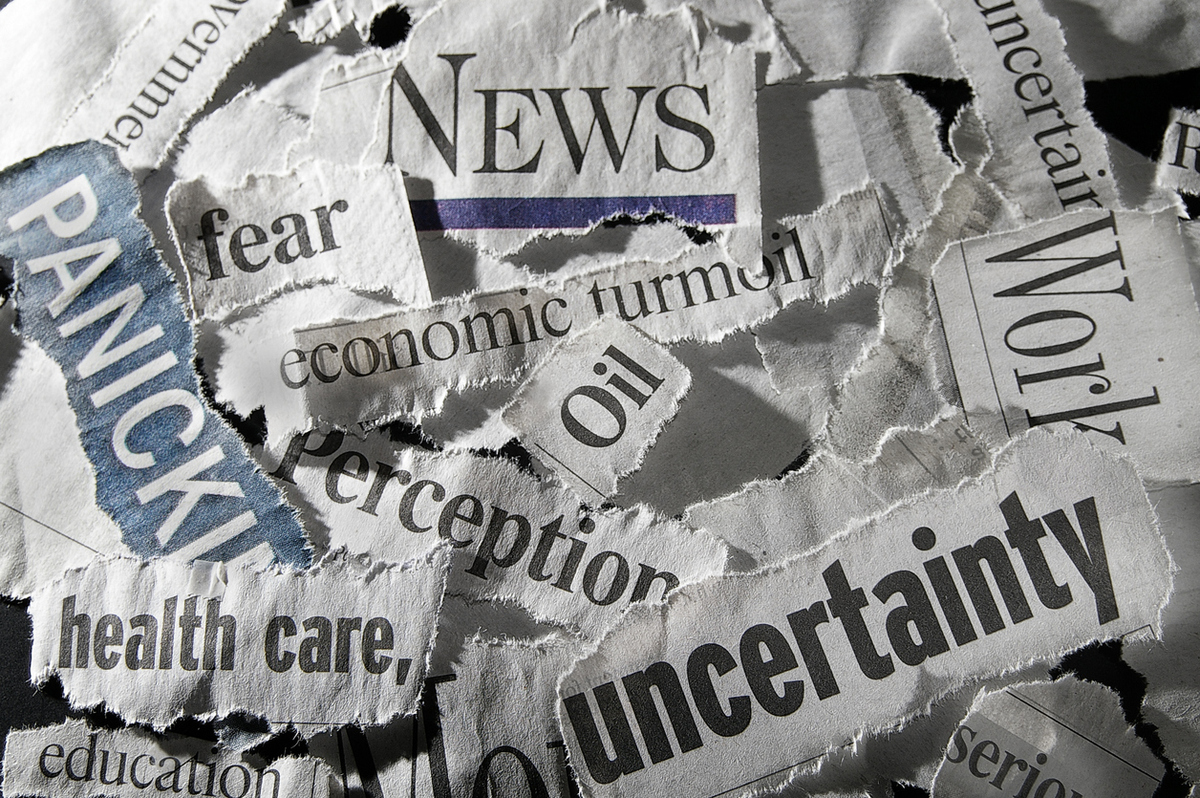Today’s headlines are just tomorrow’s fish and chip wrappers (sponsored)
Brent Wilson l Central Financial Planning
06 April 2025, 5:00 PM

Journalists define news as what’s novel, startling, or conversation-starting.
The media knows that bad news sells better than good news and uses it to grab attention. Primarily to attract advertisers.
While news coverage serves a civic function, much of what dominates the headlines is carefully crafted to trigger emotional reactions and boost engagement.
For long-term investors, this presents a challenge. How do you differentiate between genuinely important financial information and sensationalist headlines? In other words, how do you separate signal from noise?
Why Headlines Rarely Predict Market Performance
Looking at past financial headlines in hindsight provides useful insight. Below are real headlines from 2015 to 2025. Notice the dramatic wording and speculative nature of many of them:
- "Chinese Stock Market Turbulence" – June 2015, BBC News
- "Brexit Vote Shocks Markets" – June 2016, BBC News
- "Dow Plunges 1,175 Points in Largest Single-Day Drop" – Feb 2018, NYT
- "Global Markets Plummet as Coronavirus Spreads" – March 2020, BBC
- "Oil Prices Turn Negative for the First Time in History" – April 2020, CNBC
- "Tech Stocks Surge on AI Advancements" – Jan 2024, TechCrunch
- "Major Tech Companies Announce Mass Layoffs" – Feb 2025, WSJ
While these headlines reflected market fears at the time, the MSCI World Index still delivered an annualized return of 8.4% per year over this period.
This shows that while markets fluctuate, long-term trends tend to be positive.
The Investor’s Dilemma: Signal vs. Noise
To navigate financial news without falling into emotional decision-making, consider these key points:
- Understand How Markets Work: Often by the time you read about an event, the markets have already moved on to something else.
- Understand How Media Works: Sensationalism drives clicks, engagement, and advertising revenue. News today is often dominated by speculation rather than objective reporting.
- Ponder on the Motivations of Journalists: Media thrives on urgency. The goal is not just to report events but to keep the audience engaged with a constant flow of news.
- Accept What You Can and Can’t Control: While staying informed is valuable, making impulsive investment decisions based on short-term headlines can be destructive to your wealth.
- Focus on What You Can Control: Like how you have cash for your short-term and emergency needs while your longer-term investments are allocated across a range of shares, bonds, property, and cash, the degree of diversification in your portfolio, what you pay in costs and taxes, and the regular rebalancing of your portfolio.
- Work with a Financial Planner: All of this is easier if you have a financial planner who can keep you disciplined and true to your original intentions. Because they know you, understand your risk appetite, and are aware of your goals, the story always starts with you and not with what’s in the headlines.
This is not to downplay real-world events or their impact.
However, taking an active interest in global affairs and securing your financial future are not mutually exclusive.
Final Thoughts: Investing in Businesses, Not Headlines
You’re not investing in "the market"— you’re investing in businesses that aim to stay in business.
Successful companies thrive by offering products and services people need. As an investor, you share in those profits.
Well-run, profitable businesses endure, regardless of daily headlines.
PROFESSIONAL SERVICES
NEWS




